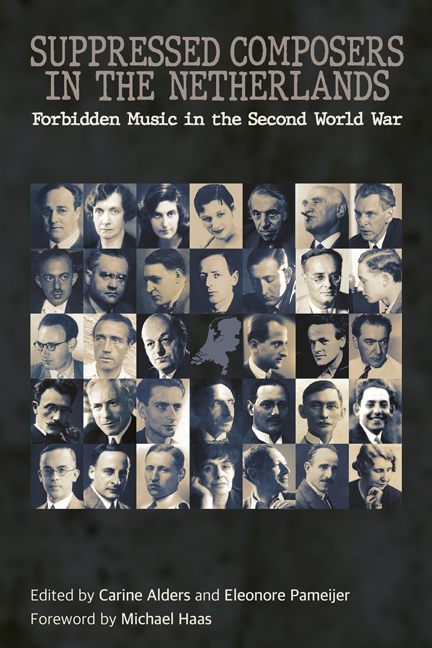10 - Simon Gokkes
Published online by Cambridge University Press: 09 May 2024
Summary
Relatively little is known about the life of Simon Gokkes. Most of his compositions were lost during the war, but in those that survived, his preference for Jewish and biblical themes is apparent. From a young age Gokkes worked as a choir and operatic conductor and he rescued a number of operas from oblivion.
Simon (Sim) Gokkes was born in Amsterdam on 21 March 1897. David Gokkes, his father, was a peddler from Blokzijl, a harbour town in the province of Overijssel, in the north-eastern part of the Netherlands. His mother, Rachel Rimini, gave birth to three sons: Jacob, Joseph and Simon. His musicality was apparent from an early age and he received singing lessons from the opera singer and conductor Ben Geijsel, and from Victor Schlesinger, cantor of the Rapenburg Synagogue in Amsterdam. How and when he began composing, or who taught him, is not clear. The fact is that in 1912, when he was only fifteen, his first compositions were performed by the choir of the Rapenburg Synagogue. As a teenager he conducted several choirs. In 1914 he replaced Schlesinger (who had left the country to take up the post of chief cantor in Manchester) as the conductor of a children's choir.
Gokkes attended the Amsterdam Conservatoire to study composition with Sem Dresden and graduated in 1919. He served for a brief time as the second Kapellmeister of the operetta company of Désiré Pauwels and Bart Kreeft, but military service brought an end to this engagement. In 1921, he founded the Amsterdamsche Korenschool (Amsterdam Choir School), aiming to renew the ‘Liedertafel’ style, an unpretentious choral style practised by male-voice choirs. The gatherings at which such music was sung were originally convivial occasions where the members sat around a table with refreshments, but the aims later became more artistic. Gokkes achieved considerable artistic success with this endeavour, according to a newspaper report from that time. He conducted the Santo Serviço, the choir of the Portuguese Synagogue in Amsterdam, for many years and he continued to compose. In 1923, he married the pianist Rebecca Winnik, who had her own private music school. They had two children, David and Rachel.
- Type
- Chapter
- Information
- Suppressed Composers in the NetherlandsForbidden Music in the Second World War, pp. 109 - 114Publisher: Boydell & BrewerPrint publication year: 2024



